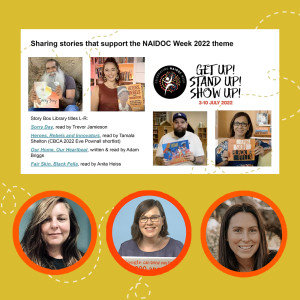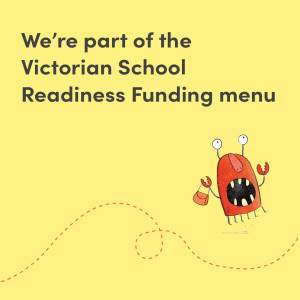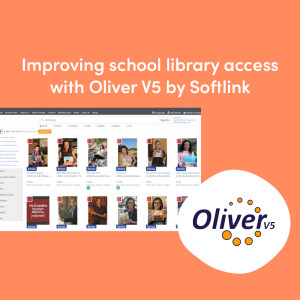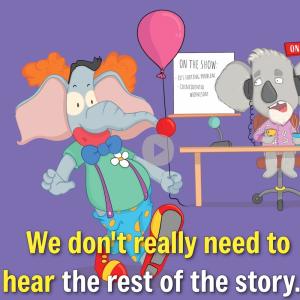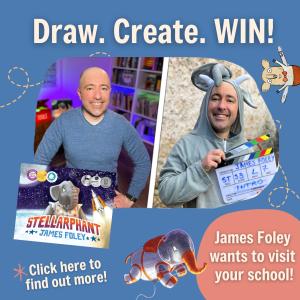National Reconciliation Week 2024: Now more than ever!
16 May 2024

What is National Reconciliation Week?
According to Reconciliation Australia, National Reconciliation Week (NRW) is a time for “all Australians to learn about our shared histories, cultures, and achievements, and to explore how each of us can contribute to achieving reconciliation in Australia”. It is an important time for all Australians to reflect on the past and plan for a future that is free of racism. This means non-Indigenous people taking responsibility for building stronger, more respectful relationships with First Nations communities.
NRW is celebrated on the same dates each year; May 27 to June 3. These dates commemorate two significant First Nations milestones; the successful 1967 Referendum and the High Court Mabo decision respectively. Schools can contribute to NRW by planning events and lessons that centre truth-telling and encourage empathy and understanding among students. Parents can keep schools accountable by respectfully inquiring about upcoming NRW school events and how to be involved. Offering to support these events and lessons will be muchly appreciated! This goes for both First Nations and non-First Nations parents and carers. Non-Indigenous children need to see the non-Indigenous adults they know (parents, carers, family friends, teachers, etc.) genuinely caring and showing up for reconciliation!
Teacher Tips:
Plan ahead – Term 2 is always very busy! It’s a reporting term, plus it is loaded with First Nations dates of significance such as the anniversary of the Pilbara Strike, National Sorry Day, the anniversaries of the Uluru Statement and 1967 Referendum, National Reconciliation Week, Torres Strait Islander Flag Day, Mabo Day, the anniversary of the Barunga Statement and NAIDOC Week. Many of these significant dates are overlooked as schools and early learning centres place their complete focus on NAIDOC Week celebrations. This can be avoided with some forward planning well in advance. Remember this for next year! Set a date in Term 1 to begin your planning for NRW and meet regularly to ensure tasks are completed on time.
Engage with First Nations people in your community – Allow time for communication, consultation and collaboration with Aboriginal and/or Torres Strait Islander people within your local community. The most genuine and impactful reconciliation events have clear engagement with the local community. Try to involve community in your planning.
Explore the theme – Each year National Reconciliation Australia choose a theme for NRW. Past themes have included ‘Be Brave. Make Change’ (2022), ‘Don’t Keep History a Mystery’ (2018), and ‘Let’s Walk the Talk’ (2014). The theme for this year is ‘Now More Than Ever’ and is a reminder to us all that the failed referendum last year to enshrine a First Nations Voice in the Australian Constitution was not the end of the line. There is (clearly) much more work that needs to be done when it comes to moving forward together as a nation that supports the First Peoples of this continent (and some of the oldest continuing cultures in the world!) to rightfully contribute to local, state and national decision making – especially to matters that directly affect First Nations cultures, communities, Country and significant cultural sites. Exploring the theme each year provides opportunities for students to learn about reconciliation from different angles (e.g. truth-telling, bravery, determination and action/change).
Parent Tips:
Attend NRW events – A quick Google search (“National Reconciliation events in [town name] 2024”) will show you different NRW events you can attend as a family. Please show your support and actively participate in these. Have a yarn with mob at these events!
Donate to First Nations organisations – NRW is a time for all people to come together and contribute to First Nations justice. Donating your money, time, skills or other resources is a great start. Common Ground First Nations is a First Nations storytelling organisation who have a doner offering matched funding during NRW. This means if you donate to Common Ground during this week, your donation (and impact) will be doubled!
Everyone can learn from stories
Read a variety of books authored and/or illustrated by First Nations people, and learn with your students/children! For NRW this year, the following books provide opportunities to learn about reconciliation, Aboriginal and Torres Strait Islander peoples, activism and the impacts colonisation had (and continues to have) on First Nations peoples.
Welcome to Country by Aunty Joy Murphy and Lisa Kennedy (available on SBL here)
Our Flag, Our Story: The Torres Strait Islander Flag by Bernard Namok Jnr, Thomas Mayo and Tori Jay-Mordey (coming late 2024 to SBL)
Somebody’s Land by Adam Goodes, Ellie Laing and David Hardy
Say Yes: A story of friendship, fairness and a vote for hope by Jennifer Castles and Paul Seden
From Little Things Big Things Grow by Paul Kelly and Kev Carmody
Our Race for Reconciliation by Anita Heiss
For 60,000 Years by Marlee Silva and Rhys Paddick (available on SBL here)
We are Australians by Duncan Smith, Nicole Godwin and Jandamarra Cadd (available on SBL here)
Walk With Us by Adam Goodes, Ellie Laing and David Hardy
Don’t stop!
Continue to listen to, learn from and stand in solidarity with First Nations communities throughout the year. Determination and consistency are necessary for true change!
Written by Jordyn from Learning to Ngangaanha – a proud Wiradjuri, Ngemba and Paakantji woman, primary teacher and Story Box Library ambassador.


